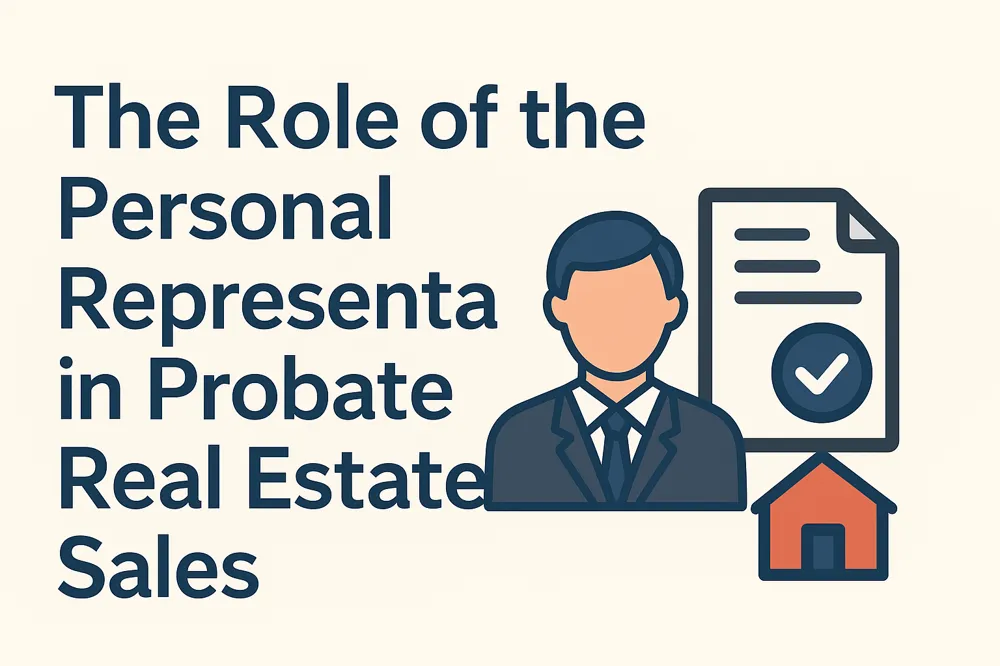The Role of the Personal Representative in Probate Real Estate Sales
Understanding the responsibilities of executors and administrators during probate.
Who Is the Personal Representative?
The personal representative is the individual appointed by the probate court to manage a deceased person’s estate. This role may be called an executor if named in a will, or an administrator if appointed when no will exists.
The Responsibilities of a Personal Representative
- Managing Estate Assets – Protecting, maintaining, and valuing real estate and other estate property.
- Paying Debts and Taxes – Ensuring all outstanding obligations are addressed before distributing assets.
- Coordinating with the Court – Filing required paperwork, reports, and seeking court approval when necessary.
- Selling Property – Listing, marketing, and overseeing the sale of probate real estate under court supervision or authority granted by the Independent Administration of Estates Act (IAEA).
The Personal Representative and Real Estate Sales
Selling real estate is often one of the largest and most complex parts of probate. The personal representative works closely with a probate real estate specialist to ensure compliance with court requirements, proper valuation, and successful marketing of the property.
Key Takeaways
- The personal representative manages the estate, including real estate sales.
- They are responsible for debts, taxes, and legal filings in addition to property sales.
- Working with a probate real estate expert can make the process smoother and reduce risk of delays.


